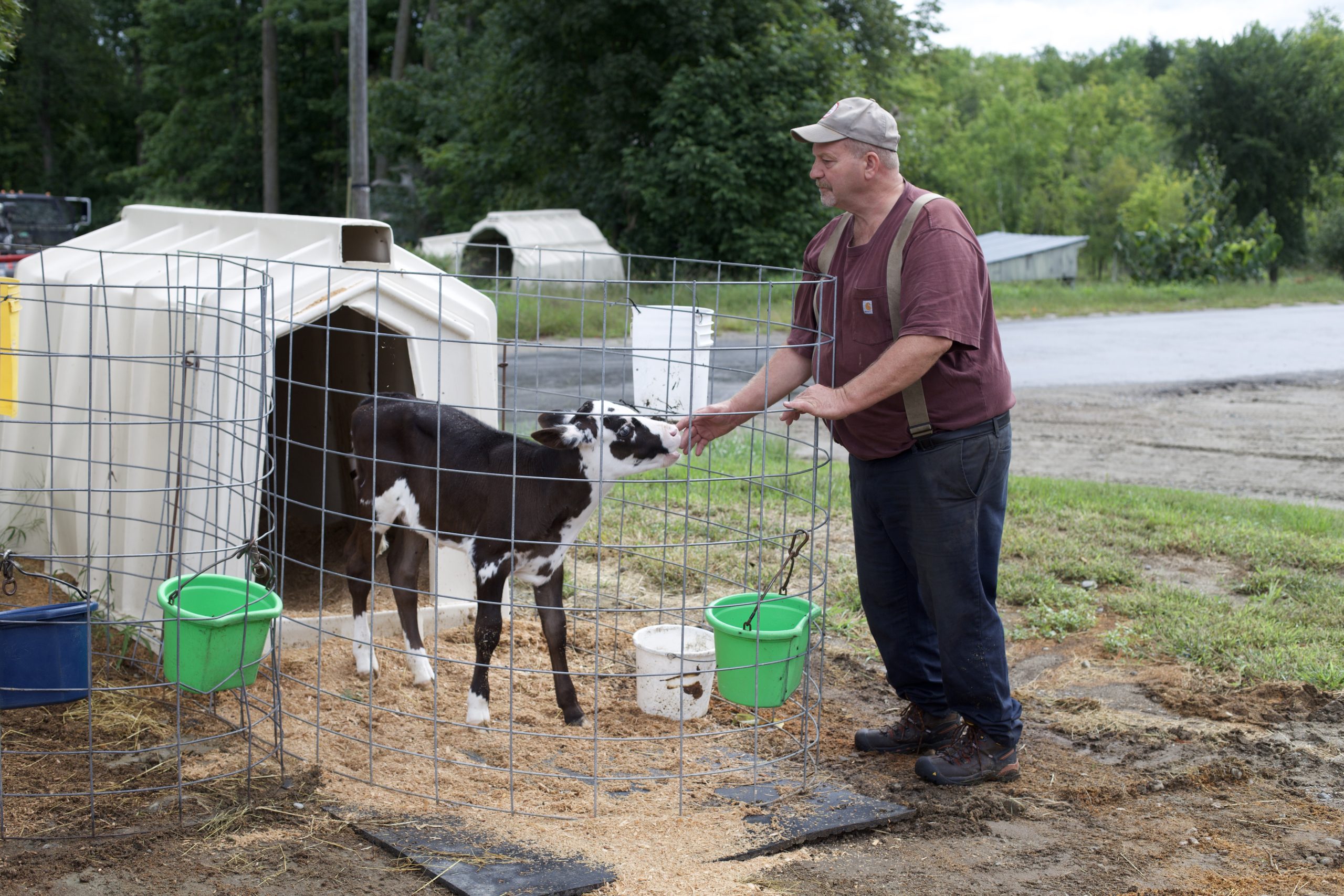
JAY – Like many generational farmers, Mark Turner has never known another business. When he graduated from high school, there was no question in his mind about whether or not he would continue working on his father’s dairy farm. M.T. Farm on Soules Hill Road has been around since the 1900s. In the early days, the 400-acre farm focused on oxen and beef cattle, but made the switch to dairy in the 1950s. The transition was a fairly straight forward one. Mark’s great grandfather didn’t like working out in the woods, especially on cold winter days, so he opted for the warmth of the milking barn. The milk was brought to a creamery in Livermore Falls in 10-gallon, steel canisters.
But the dairy industry has seen drastic change since the 1950s, and the system lacks the simplicity of the early days.
Last week, the Turners, along with 13 other Maine dairy farms, received letters that will inevitably bring big change once again. Danone, who owns Horizon Organic, has made the decision to cut ties with 89 organic dairy farms throughout the northeast, leaving the milk with no market. The state is scrambling to show support for the farms, but for many, the future looks bleak.
“I told them they oughta teach us how to fill out an application, because we’ve never had to get another job. This has always been it,” Mark said.
Mark said he may have to consider getting a part time job to make ends meet- a daunting task for a 63-year-old lifelong farmer.
This isn’t the first time Mark has seen the farm through a pivot. He, his parents, and his sister, who manage the farm together, made the decision to switch to organic practices 14 years ago. The prices were appealing, though the decision had its downsides. They have to buy organic grain now, which is more expensive, and the certification requires significant amounts of annual paperwork. Mark said they were organic for the most part as they were, but the label enabled them to access a better-paying market. Horizon has paid them a base price of $25 per 100 pounds, the price goes up for the butterfat. The Turner’s 40 milking cows produce about 2,000 pounds of milk a day. But Horizon also charges the Turners $35 every time they pickup and .75 for every 100 pounds of milk they have to move. Horizon noted the cost of transporting the milk as a determining factor in their decision. They will be looking to source milk closer to their processing facilities.
“Everyone’s got decisions to make,” Mark said.
For the majority of the farms impacted, the options will be limited to finding a new buyer, finding a different market such as beef, or finding a completely different lifestyle. Fortunately, for Mark and several others throughout Maine, there is one additional option.
The Turners have been members of the Agri-Mark co-op for years now, so despite losing a good-paying buyer such as Horizon, they won’t be completely without a market. The Agri-Mark offer is quite a bit lower than that of Horizon, Mark said, and they don’t buy organic. According to Mark, they can make the switch to more affordable, conventional grain, but they will never be able to go organic with this herd of cows again.
“It’s either that or retirement. We’ve got a year to decide,” he said.




